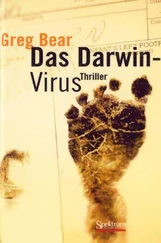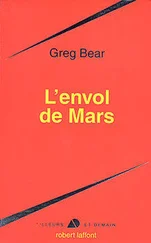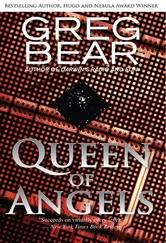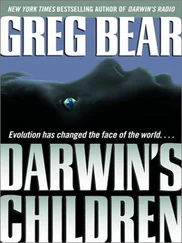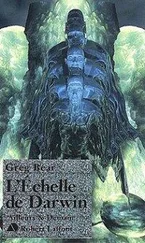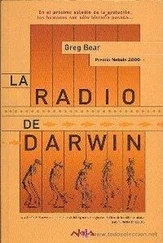Champion looked around the group under the canvas canopy, nodded deeply, then gave several additional shallow nods, showing she had had her say and was prepared to leave. She climbed the trail to the lip of the bluff with the burly intern lighting the way.
“Extraordinary,” Merton said, eyes still gleaming. “Privileged insight. Maybe even native wisdom.”
“Don’t let it get to you,” Ripper said. “Sue’s good people, but she doesn’t know what’s happening any more than my sister does.” Ripper turned to Mitch. “God, you look ill,” she said.
Mitch did feel a little queasy.
“I’ve seen that look on cabinet ministers,” Merton observed quietly. “When they were stuffed full of too many secrets.”
Kaye swung her small bag out of the backseat of the cab and slipped her credit card through the driver’s-side reader. She craned her head to look at Baltimore’s newest tower condo development, Uptown Helix, thirty floors poised on two broad quadrangles of shops and theaters, all in the shadow of the Bromo-Seltzer Tower.
The remains of a dusting of snow from earlier in the morning lingered in slushy patches along the sidewalk. To Kaye, it seemed this winter was lasting forever.
Cross had told her that the condo on the twentieth floor would be fully furnished, that her belongings would be moved in and arranged, there would be food in the refrigerator and pantry, a running tab at several restaurants downstairs: everything she desired and needed, a home just three blocks from AmericoFs corporate headquarters.
Kaye presented herself to the doorman in the resident’s lobby. He smiled the way servants smile at rich people and gave her an envelope containing her key. “I don’t own this, you know,” she said.
“Doesn’t matter a bit to me, ma’am,” he replied with the same cheerful deference.
She rode the sleek steel and glass elevator through the atrium of the shopping arcade to the residential floors, tapping her fingers on the handrail. She was alone in the elevator . I am protected, provided for, kept busy going from meeting to meeting, no time to think. I wonder who I am anymore.
She doubted that any scientist had ever felt so rushed as she felt now. Her conversation with Christopher Dicken at the NIH had pushed her onto a sidetrack having little to do with the development of SHEVA therapies. A hundred different elements of her research since postgraduate days had suddenly floated to the surface of her mind, shuffled around like swimmers in a water ballet, arranged themselves in enchanting patterns. Those patterns had nothing to do with disease and death, everything to do with the cycles of human life — or every kind of life, for that matter.
She had less than two weeks before Cross’s scientists would present their first candidate vaccine, out of twelve — at last count — being developed around the country, at Americol and elsewhere. Kaye had underestimated the speed with which Americol could work — and had overestimated the extent to which they would keep her informed. I’m still just a figurehead , she thought.
In that time, she had to make up her mind about what was actually happening — what SHEVA actually represented. What would finally happen to Mrs. Hamilton and the other women at the NIH clinic.
She emerged on the twentieth floor, found her number, 2011, fitted the electronic key into the lock, and opened the heavy door. A rush of clean, cool air, smelling of new carpet and furniture, of something else rosy and sweet, wafted out to greet her. Soft music played: Debussy, she could not remember the name of the piece, but she liked it a lot.
A bouquet of several dozen yellow roses spilled over from a crystal vase on the top of the low etagere in the hall.
The condominium was bright and cheerful, with elegant wood accents, beautifully furnished with two couches and a chair in suede and sunset gold fabric. And Debussy. She dropped the bag onto a couch and walked into the kitchen. Stainless-steel refrigerator, stove, dishwasher, gray granite countertops edged with rose-colored marble, expensive jewel-like track lighting throwing little diamond glows around the room…
“Damn it, Marge,” Kaye said under her breath. She carried the bag into the bedroom, unzipped it on the bed, pulled out her skirts and blouses and one dress to be hung in the closet, opened the closet, and stared at the wardrobe. Had she not already met two of Cross’s handsome young male companions, she would have been sure, at this point, that Marge Cross had designs on her other than corporate. She quickly flicked through the dresses, suits, silk and linen blouses, looked down at shoe racks supporting at least eight pairs for all occasions — even hiking boots — and that was enough.
Kaye sat on the edge of the bed and let out a deep, quavering sigh. She was in way over her head socially as well as scientifically. She turned to look at the reproduction Whistler prints over the maple dresser, at the oriental scroll beautifully framed in ebony with brass finials that hung on the wall over the bed.
“Little hothouse posy in the big city.” She felt her face screwing up in anger.
The phone in her purse rang. She jumped, walked into the living room, opened the purse, answered.
“Kaye, this is Judith.”
“You were right,” Kaye said abruptly.
“Beg pardon?”
“You were right.”
“I’m always right, dear. You know that.” Judith paused for effect, and Kaye knew she had something important to say. “You asked about transposon activity in my SHEVA-infected hepatocytes.”
Kaye felt her spine stiffen. This was the stab in the not-so-dark she had made two days after speaking with Dicken. She had pored over the texts and refreshed herself with a dozen articles in six different journals. She had gone through her notebooks, where she had scribbled down mad little moments of extreme speculation.
She and Saul had counted themselves among the biologists who suspected that transposons — mobile lengths of DNA within the genome — were far more than just selfish genes.
Kaye had written a solid twelve pages in the notebook on the possibility that these were very important phenotype regulators, not selfish but selfless; they could, under certain circumstances, guide the way proteins became living tissue. Change the way proteins created a living plant or animal. Retrotrans-posons were very similar to retroviruses — and thus the genetic link with SHEVA.
All together, they could be the handmaids of evolution.
“Kaye?”
“Just a moment,” Kaye said. “Let me catch my breath.”
“Well you should, dear, dear former student Kaye Lang. Transposon activity in our SHEVA-infected hepatocytes is mildly enhanced. They shuffle around with no apparent effect. That’s interesting. But we’ve gone beyond the hepatocytes. We’ve been doing tests on embryonic stem cells for the Taskforce.”
Embryonic stem cells could become any sort of tissue, very much like early growth cells in fetuses.
“We’ve sort of encouraged them to behave like fertilized human ova,” Kushner said. “They can’t grow up to be fetuses, but please don’t tell the PDA. In these stem cells, the transposon activity is extraordinary. After SHEVA, the transposons jump around like bugs on a hot griddle. They’re active on at least twenty chromosomes. If this were random churning, the cell should die. The cell survives. It’s as healthy as ever.”
“It’s regulated activity?”
“It’s triggered by something in SHEVA. My guess is, something in the LPC — the large protein complex. The cell reacts as if it’s being subjected to extraordinary stress.”
“What do you think that means, Judith?”
Читать дальше
Конец ознакомительного отрывка
Купить книгу

